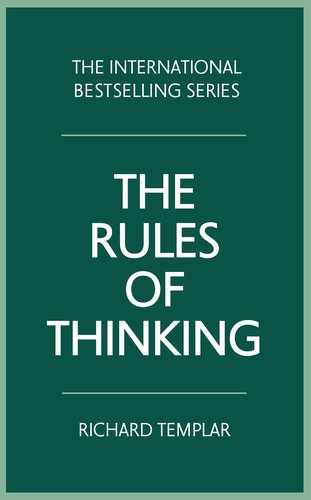Most decisions of any size will need some research – in other words collecting information. Costs, timescales, options, opinions and so on. I say most because there are a few very subjective decisions (do I want kids?) where collecting your thoughts is more use than collecting information. For everything else, you need catalogues, job adverts, prices, prospectuses, lists of contacts, technical information.
And don’t forget that a lot of decisions will rely to some degree on other people’s feelings. How do the team feel about a new management structure, what do the children think of moving house, will the neighbours object if you put in for an extension, is your business partner OK with you going part time, would your elderly dad be happy to move in with you? This is all relevant information so you need to canvass opinions about any proposed change. This is not the same as asking advice – this is about finding out whether other interested parties are on board with any plans you make. You won’t necessarily do what they want, but you need to know how they’ll react to your decision.
Frankly, there’s a lot to know when it comes to some decisions. And you could spend a long time gathering all the facts and opinions you need. Potentially, you could spend so long researching that you never actually make the decision at all.25 I have one friend who explored leaving a job he hated for literally ten years before finally doing something about it.
So you have to find a balance when it comes to research. A Goldilocks level of information – not too much, not too little. Just right. Enough to make a well-informed decision, but not so much you’re overwhelmed by it and can’t see the wood for the trees. So how much information do you actually need then?
Look, I can’t answer that question because it depends on the decision. You need to think through which bits of research are necessary at this stage of the decision. Don’t clutter your head with anything that you don’t need yet. In any case, depending on which way the decision goes, you could just be wasting your time.
Suppose you’re considering applying for a particular job. At this point, the only information you need is what feeds in to the decision of whether or not to apply. So probably the job description, the salary, the location, the career prospects (within the company or when you move on again). And an outline sense of whether that employer is seen as a decent one. That’s most of what you need to decide if you’re going to apply. And if that convinces you not to put in an application, any other information gathering will have been a waste of time. So sift out this essential information from all the other stuff which will just get in the way.
Once you actually apply (if you do), that’s the point at which you’d start researching for your next decision: will you take the job if it’s offered to you (come on, you’re a Rules player, ’course they’re going to offer it to you). Now you probably want to find out more detail about the company, the working hours, the amount of travelling, the people you’d be working with, how the company is viewed within the industry and by staff, and so on. In other words, most of the research you’d need in order to do well at interview, plus some more info on top of that. But don’t waste your time on this stuff until you’ve made the first decision or you’ll just be making it harder for yourself.
DON’T CLUTTER YOUR HEAD WITH ANYTHING THAT YOU DON’T NEED YET
_________________________
25 I haven’t forgotten about procrastination. I’ll get on to it at some point.
